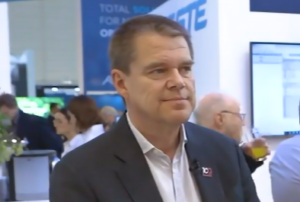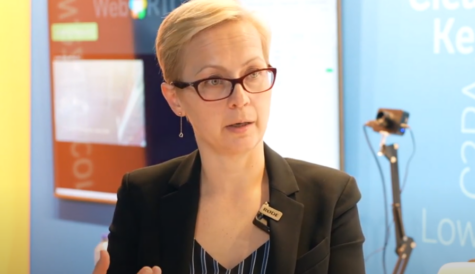
After more than 40 years of operation, DTVE is closing its doors and our website will no longer be updated daily. Thank you for all of your support.
Teleste secures North American 1.8GHz amp deployments
Broadband technology provider Teleste has secured what it describes as industry-first customer approvals and field deployments of its DOCSIS 4.0-compliant 1.8 GHz ICON amplifiers in the North American market.
Teleste said that the volume manufacturing of these smart amplifiers would take place in its own automated factory, with capacity ramp-up corresponding with volume demands from multiple customers. Teleste said it had received orders from four North American cable operators, enabling them to start their network upgrades.

Hanno Narjus
“The cable industry’s promise to deliver 10 Gbps speeds is starting to materialize. When Cable MSOs and technology providers agreed years ago on the common vision of 10G services to the consumers, we knew there would be a lot of heavy lifting to be done to fulfill this promise. We at Teleste feel pride when we can now announce the industry’s first customer approvals and commercial deliveries, and I’d like to thank our customers, partners and Teleste team for making this milestone possible” said Hanno Narjus, head of Teleste’s Broadband Networks business unit.
Pasi Järvenpää, head of Teleste R&D, said: “Teleste’s well-developed automated production process ensures 100% compliancy with specifications in high-volume production. 1.8 GHz amplifiers are third generation smart devices in Teleste’s product offering. The production environment is an integral extension of the intelligent amplifier and has been continuously improved over three product generations, resulting in highly automated and hence scalable manufacturing machine with less dependency on human labor. High level of automation enables consistent quality control and workmanship, eliminating human errors and providing a superior product. The unique feature of our production process is leveraging built-in intelligence of the product, allowing automated tuning and testing in the final assembly.”
Tough period
News of the deployments comes after a tough period for Teleste. The company’s most recent quarterly financials saw net sales declining by a third to €30.7 million, with an adjusted operating loss of €1.4 million taking the place of a positive €0.5 million for the prior year period.
CEO Esa Harju said at the time that volume and revenue within the broadband networks business “remained very modest in the last quarter of 2023, due to low market demand”, with operators cutting costs and making the most of existing inventory.
He said that the company was looking to recovery in the North American market to boost sales this year, following a slowdown in the second half.
Hard said that European market demand would “remain uncertain” this year, which is partly down to uncertainty around how cable operators transition to next-generation cable and fibre-based technologies.
Cable operators in Europe have been slow to adopt DOCSIS 4.0, with many choosing instead to build out fibre-to-the-home or sweat existing investments in technologies such as DOCSIS 3.1.


